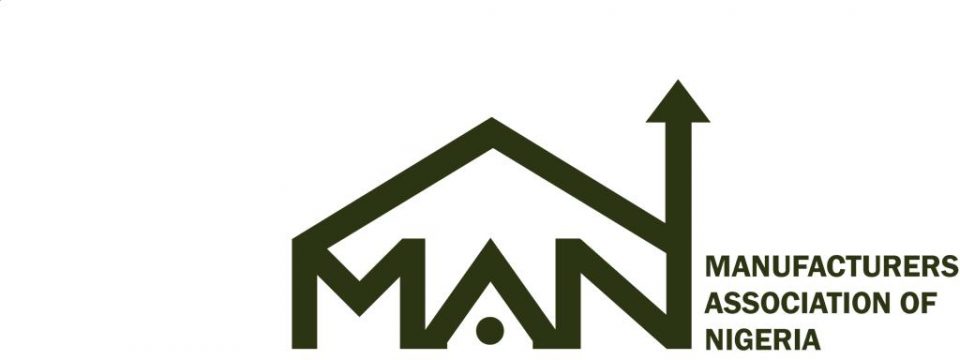Photo caption: MAN logo
By Charles Okonji
The Manufacturers Association of Nigeria (MAN) in its Executive Summary for the first half of 2024 has shown that the inventory of unsold finished goods has surged by 357.57.
According to MAN, the survey is designed to monitor changes in manufacturing sector performance indicators viz-a-viz the behaviors of macroeconomic and policy environments during the period of the survey.
According to MAN, “The inventory of unsold finished products in the manufacturing sector surged by 357.57 percent year-on-year, reaching N1.24 trillion in H1 2024. This alarming increase is attributed to declining consumer purchasing power due to escalating inflation, subsidy removal, and the devaluation of the naira. The high levels of unsold inventories reflect the challenges faced by consumers and the need for interventions to stimulate demand and improve the sector’s performance.”
On capacity utilization, the executive summary showed that capacity utilization in the manufacturing sector reveals a slight year-on-year decline to 56.4 percent in H1 2024, from 56.5 percent in H1 2023.
“However, there was a 2.8 percentage point increase compared to H2 2023, reflecting some recovery. The sector faced significant challenges, including high energy costs due to a 200 percent increase in electricity tariffs, forex scarcity, and declining consumer demand. These factors collectively resulted in elevated operational costs and a difficult business environment for manufacturers,” the document explained.
Moreover, the manufacturers survey document established that the real manufacturing output in Nigeria declined by 1.66 percent year-on-year in H1 2024, falling to N1.34 trillion from N1.36 trillion in H1 2023.
“Despite this decline, the sector saw a 9.97 percent increase compared to H2 2023, driven by a baseline effect. The sector’s challenges included rising electricity tariffs, exchange rate volatility, and higher energy costs, which heightened production costs amidst declining consumer demand. The persistent increase in interest rates by the Central Bank of Nigeria further strained the sector.” The document established.
The detailed survey document of MAN stated that Nigeria’s economy continued to grapple with formidable challenges that have stymied its growth potential and eroded economic stability.
According to the material; “The real GDP growth rate was sluggish, reflecting the country’s struggle to regain momentum amidst persistent economic and policy headwinds.
“Inflationary pressures intensified, significantly diminishing the purchasing power of Nigerians, with millions more being pushed into poverty due to the combined effects of soaring prices and stagnant wages.
“The policy environment during this period was marked by uncertainty and turbulence. Despite efforts to stabilize the economy, including aggressive monetary tightening by the Central Bank of Nigeria (CBN), which raised the Monetary Policy Rate (MPR) to an unprecedented 26.25 percent, the desired outcomes in terms of curbing inflation and stimulating growth remained elusive.
“The higher interest rates exacerbated borrowing costs, placing further strain on businesses across various sectors, particularly manufacturing, which already faced significant challenges such as forex scarcity, high operational costs, and unreliable electricity supply.”



